Restoration of Shrewsbury flax mill enters final stage
- Published
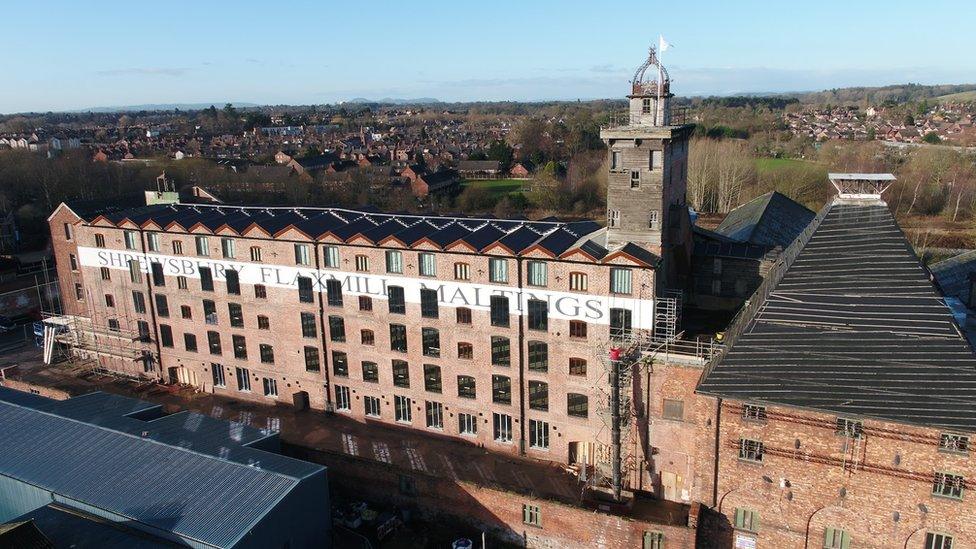
Restoration work at the Shrewsbury Flaxmill site started in 2017
The restoration of a Shropshire heritage site has entered its final stages, Historic England said.
Shrewsbury Flaxmill Maltings is thought to be the world's first iron-framed building and is considered a forerunner to the modern skyscraper.
The project has also received a £1m funding boost from Shropshire Council which said the regeneration would provide a "massive boost" to the town.
Works at the site, built in 1797, are due to be completed by summer 2021.
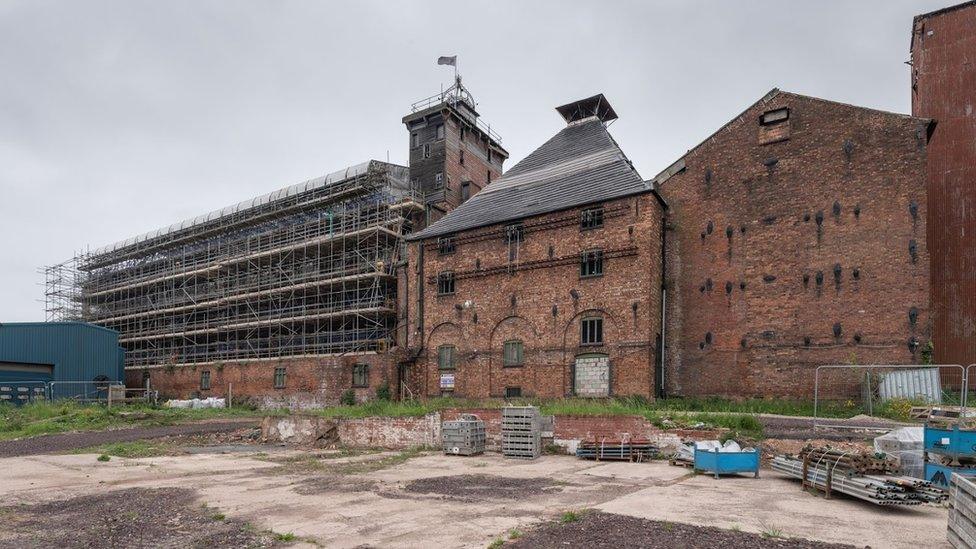
The mill, built in 1797, was Shrewsbury's largest employer during the Industrial Revolution
A £20.7m grant awarded by The National Lottery Heritage Fund enabled regeneration work to start in 2017.
The third and final construction phase started in January and over the next 18 months will see final repairs to the interior and exterior of the Grade I listed main mill and Grade II listed kiln.
Duncan Wilson, chief executive at Historic England, said the mill was "one of the most extraordinary historic places in the world".
"It is a pleasure to see these unique buildings coming back to life as we enter the final stages of the restoration of the main mill," he added.
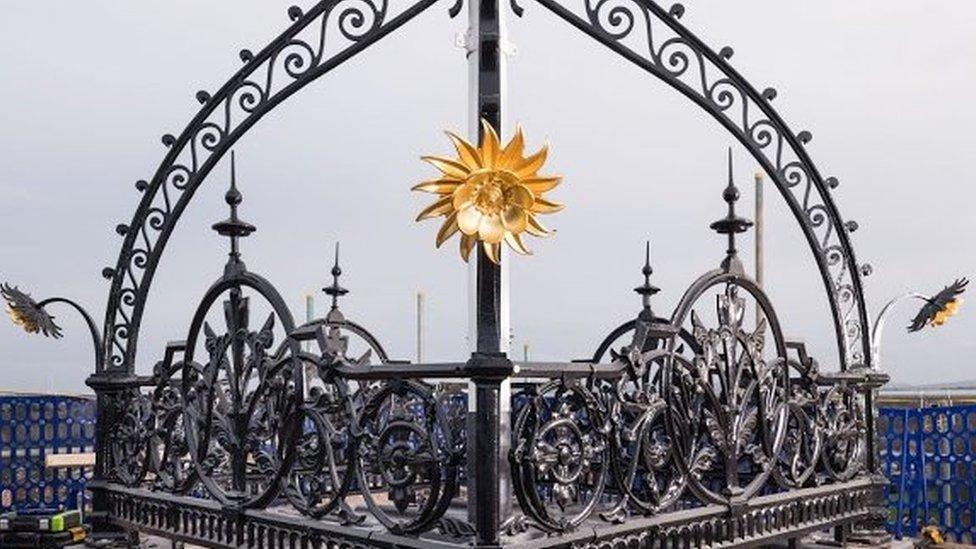
Restoration work to a cast iron coronet has also taken place
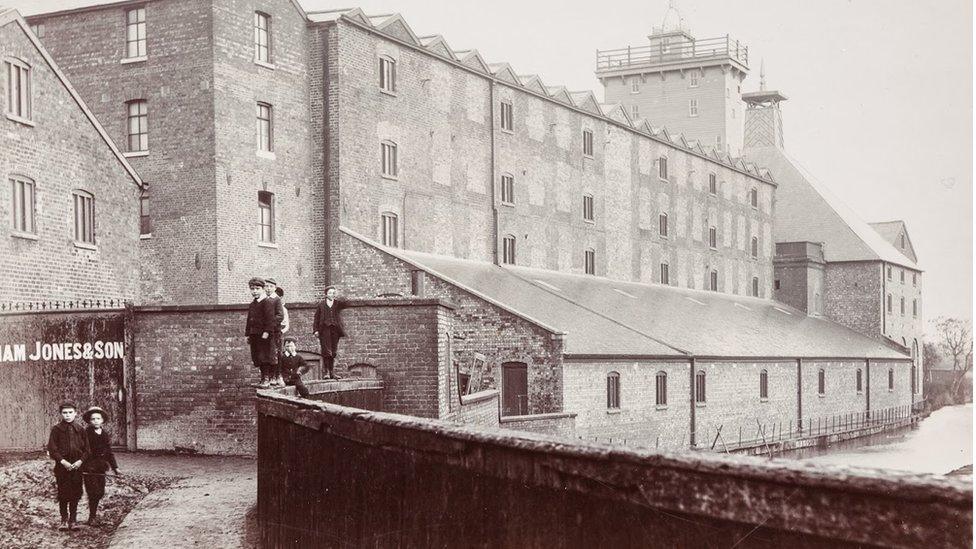
The mill, pictured here in the late 19th Century, was built in 1797
Built in 1797, at its height more than 800 men, women and children worked at the site turning flax into cloth.
During the Napoleonic Wars, the mill produced uniforms for British soldiers.
After it closed in 1886 the building was later turned into a maltings, to process barley for the brewing industry.
The buildings have lain empty since the maltings closed in 1987.
The regenerated site will become a new "learning and enterprise quarter" in Shrewsbury, with offices to house creative industries.

Follow BBC West Midlands on Facebook, external, on Twitter, external, and sign up for local news updates direct to your phone, external.
- Published5 June 2019
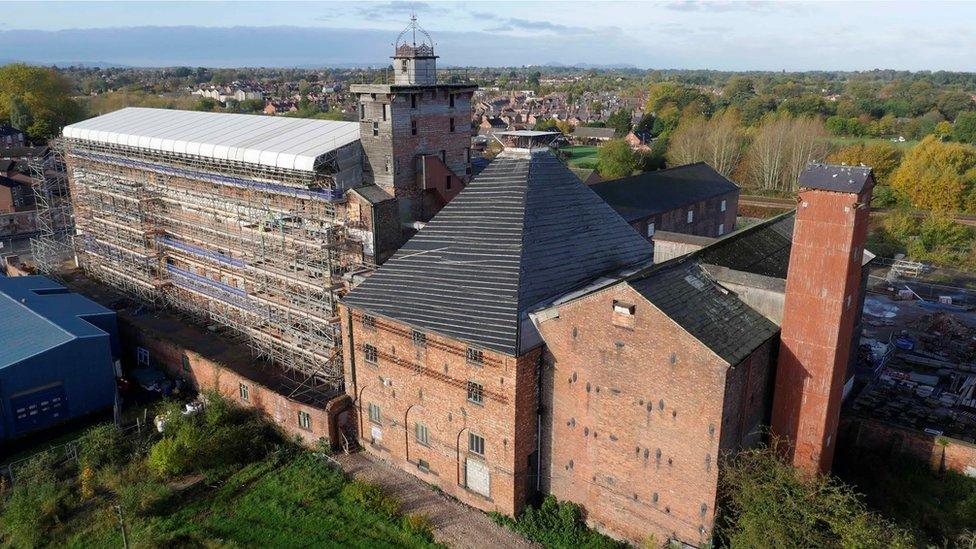
- Published20 May 2019
